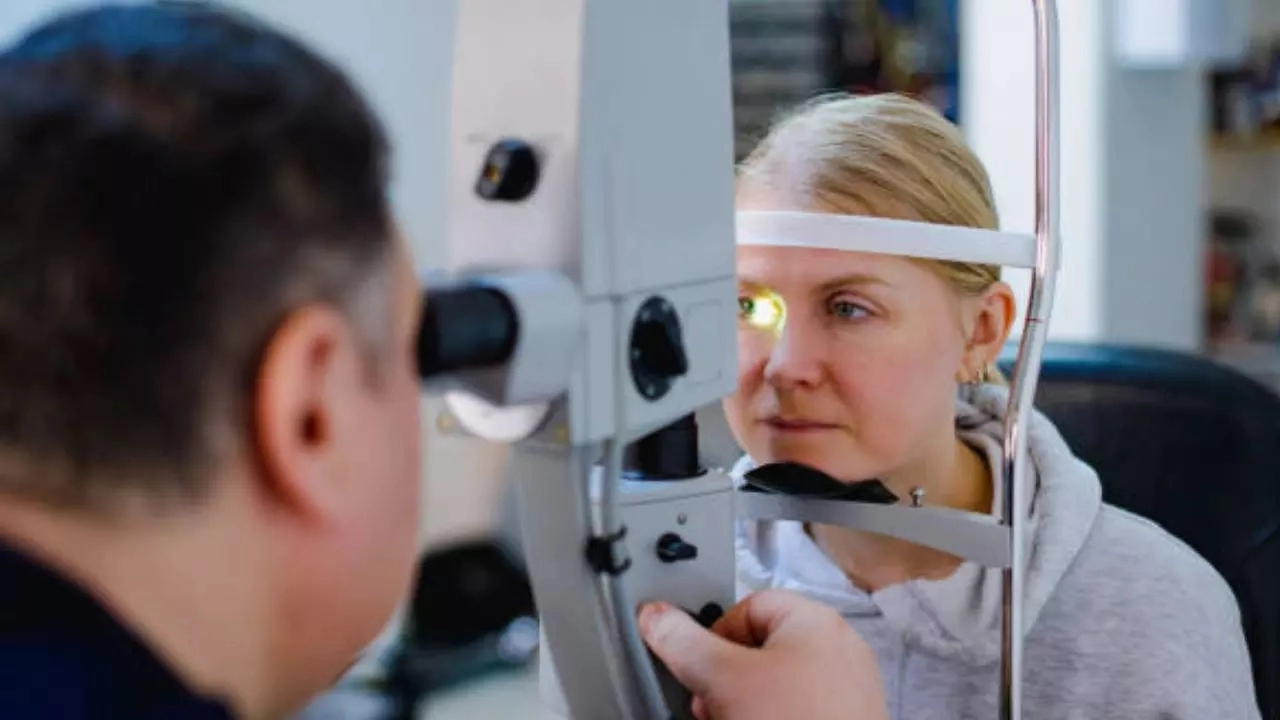Pallavi Mehra • 10 Oct 2024
World Sight Day 2024: Can LASIK Surgery Safe For Every Age Group? Here's What Eye Doctor Says

World Sight Day 2024: Can LASIK Surgery Safe For Every Age Group? Here's What Eye Doctor Says (Image Credits: iStock)
Vision problems such as nearsightedness (myopia), farsightedness (hyperopia), and astigmatism are common. Many people use glasses or contact lenses to help them see better. However, some people choose to have LASIK surgery to correct their vision so they no longer need glasses or contacts. LASIK (Laser-Assisted In Situ Keratomileusis) is a type of eye surgery that uses a laser to reshape the cornea, improving the way the eye focuses light.
During LASIK surgery, a doctor uses a laser to make a small flap in the cornea. The cornea is the clear, outer part of the eye that helps focus light onto the retina, which is at the back of the eye. The surgeon then reshapes the cornea to correct any vision problems. Once the cornea is reshaped, light can focus properly on the retina, and the person can see more clearly without the need for glasses or contact lenses.
The whole procedure takes about 30 minutes, and most people can go home the same day. But is it safe for everyone? Who is more at risk? Which age group should consider getting a LASIK surgery done? We got in touch with Dr Varun Gogia, Senior Ophthalmologist, Pristyn Care who shares insights on it.
LASIK and Different Age Groups
Dr Varun shares that while LASIK can be a great option for many people, it’s unsuitable for all ages. Let’s have a look at the most common age groups and whether LASIK is safe for them.
1. Children and Teenagers (Under 18 Years)
LASIK is generally not recommended for children and teenagers, he explains. The reason for this is that their eyes are still developing. A person’s vision may continue to change during their teenage years, and even into their early 20s. Performing LASIK on young eyes may not provide lasting results, and the patient might need treatment in the future. Most eye doctors recommend waiting until a person’s vision has been stable for at least one or two years before considering LASIK.
2. Young Adults (18 to 40 Years)
For this age group, LASIK is a safe and effective option, Dr Varun shares. By now, the eyes have usually developed, and the vision stabilized. If someone’s prescription for glasses or contacts hasn’t changed for a year or more, they may be a good candidate for LASIK. However, not everyone is suitable for the procedure. It’s important to have a thorough eye exam to check the health of the eyes and the thickness of the cornea. People with certain eye conditions, such as dry eyes or thin corneas, may not be good candidates for LASIK.
3. Middle-aged adults (40 to 60 Years)
As people enter their 40s, they often begin experiencing presbyopia, a condition that makes it harder to see things up close. Dr Varun shares that LASIK cannot fully correct presbyopia, so people in this age group might still need reading glasses after surgery. However, LASIK can still aid in correcting other vision problems, like nearsightedness or farsightedness. Eye health is important to consider at this stage, as conditions like cataracts can also begin to develop.
4. Older Adults (60 Years and Above)
LASIK is generally not recommended for people over 60, mainly because of the increased likelihood of other eye problems, such as cataracts or glaucoma. Cataracts, in particular, are a condition where the lens becomes cloudy, and LASIK cannot fix this. In these cases, a different surgery, such as cataract surgery, may be needed to restore vision. However, if an older adult has very healthy eyes and no signs of cataracts or other conditions, they might still be a candidate for LASIK. Again, a detailed eye examination is necessary to determine if the surgery is a good option.
“LASIK can be a great solution for many people with vision problems, but it isn’t safe or suitable for everyone. Age is important in determining whether someone is a good candidate for LASIK. Children and teenagers should wait until their eyes stop changing, while young adults and some middle-aged people may find LASIK to be an effective way to correct their vision. Older adults, however, may need to consider other options if they have other eye conditions,” Dr Varun said.
Get Latest News Live on Times Now along with Breaking News and Top Headlines from Health and around the world.